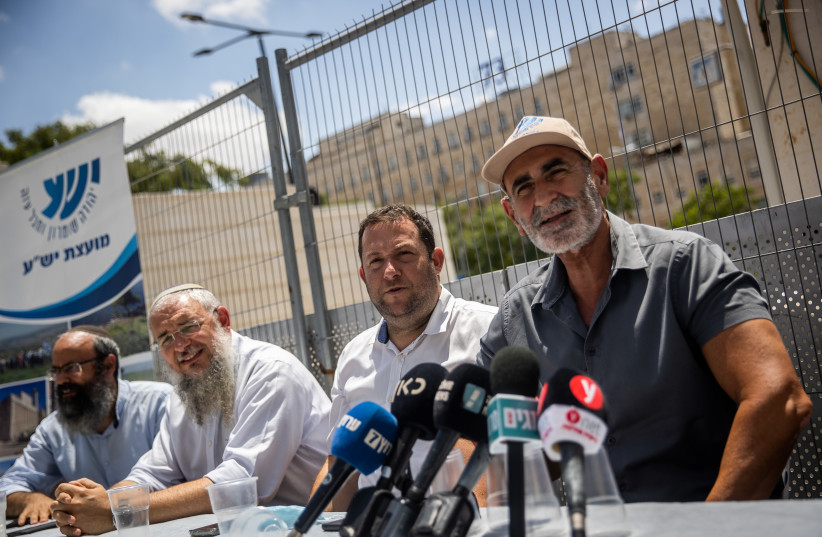Gush Etzion Regional Council head Shlomo Ne’eman pledged to work for Israeli sovereignty over West Bank settlements after his election as the head of the Yesha Council.
In the coming weeks, he is slated to replace Jordan Valley Regional Council head David Elhayani, who has served in that role since 2019.
Ne’eman has been among the more vocal voices in the Yesha Council. He was one of the five settler leaders who traveled to Washington in 2020 for the unveiling of then-US president Donald Trump’s peace plan.
At the time he joined forces with regional council heads Yossi Dagan of Samaria, Israel Gantz of Binyamin and Yochai Damri of the South Hebron Hills to oppose the Trump plan, even though it allowed for the eventual annexation of the settlements.
The four settler leaders had opposed the portion of the plan that called for the creation of a demilitarized Palestinian state.

Israel suspended any sovereignty plans in favor of the Abraham Accords, under whose rubric it normalized ties with four Arab states.
The significance of sovereignty
Still, Ne’eman spoke of the significance of sovereignty after his unanimous election late Tuesday night by the regional and local council heads in Judea and Samaria.
“The first task before us is to strengthen the sovereignty and the Jewish presence in the region,” Ne’eman said.
“This is the time to unite against those who seek to harm us,” Ne’eman said, adding that this includes “the Palestinian Authority and other terrorist organizations that fight against us.
Ne'eman's journey to this point
Ne’eman immigrated to Israel in 1990 from the former Soviet Union after living in Russia’s Birobidzhan district. He was elected to head the Gush Etzion Regional Council in 2017.
Since then he has opened up an Eastern European desk under Yesha’s auspices to strengthen the connection between Russian speakers and the settlements.
In the letter Ne’eman wrote to the council prior to his election, he spoke of the importance of “energetic and professional advocacy” to ensure that Judea and Samaria are seen as legitimate both by the Israeli public and the global community.
